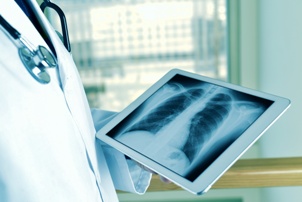 The trauma of a car crash can cause serious injuries to your lungs and may be an immediate medical emergency. Because strong, healthy lungs are vital for survival, a damaged lung may impact your life for a long time to come.
The trauma of a car crash can cause serious injuries to your lungs and may be an immediate medical emergency. Because strong, healthy lungs are vital for survival, a damaged lung may impact your life for a long time to come.
Symptoms of a Car Accident Lung Injury
A lung injury must be diagnosed by a medical professional. Since a lung injury can be life-threatening, it is important to seek immediate medical attention if you experience any of the following symptoms after a car crash:
Chest pain.
A lung injury may result in a sharp pain in a specific part of the chest or a dull pain over a wider part of the chest.
Difficulty breathing.
This includes both rapid breathing and shortness of breath.
Coughing.
A dry cough, not associated with a respiratory virus or infection, could be a sign of a lung injury.
Cyanosis.
If your skin, lips, or mouth appear blue, your blood may not be getting enough oxygen because of a lung injury.
Changes in your heart rate or pulse.
An increased heart rate or a weak pulse could be indicative of a lung injury.
One or more of these symptoms could be signs of a serious lung injury. Do not dismiss breathing problems or chest pain after a car accident as possible signs of anxiety or a panic attack. Instead, make sure that any breathing issue, cough, or chest pain is appropriately diagnosed so that you can get the treatment you need.
Types of Car Accident Lung Injuries
Not all car accident lung injuries are the same. The trauma of a car crash could cause a:
Punctured lung.
A sharp object or a broken rib can go right through the lung. When the lung is punctured, air from the lung can fill your chest. A punctured lung can be painful, and it may increase your chances of suffering from a collapsed lung. Treatment for a punctured lung will depend on your physical symptoms, whether you suffered one puncture or multiple punctures, and the size of each puncture. You may require rest, supplemental oxygen, a chest tube to release air from your chest, and surgery to close the puncture.
Collapsed lung.
When a lung is punctured, so much air may gather in the chest cavity that the lung is no longer able to inflate properly. A portion of your lung—or the entire lung—may collapse. A collapsed lung can be painful and life-threatening. A chest x-ray or CT scan may be used to make a diagnosis. Treatment may include medical observation, rest, supplemental oxygen, a needle or chest tube to remove air from the chest cavity, or surgery.
Smoke or chemical inhalation.
Car wrecks can result in fires, which can lead to dangerous inhalation of smoke and chemicals. Long-term breathing difficulties can occur even if you were only exposed to the smoke or chemicals for a few minutes.
Your recovery may require multiple doctors’ appointments, medical procedures, and time away from work or school. You may suffer physically and emotionally during this difficult time.
Protect Your Fair Recovery to Car Accident Damages
If someone else caused you to suffer a lung injury in a Kentucky car crash, you have the right to seek damages for all of your physical and emotional injuries.
Our legal team includes experienced attorneys and a staff nurse. We are here to review your case—free of charge—and our lawyers would be pleased to provide you with a free consultation about your legal rights and possible recovery. If you choose to hire us, we will fight hard for your fair recovery, and you will not owe us any legal fees unless your case is successful.
To learn more, please contact us online or call our office directly at 888.450.4456 to schedule your complimentary, no-obligation consultation.
Related Links: